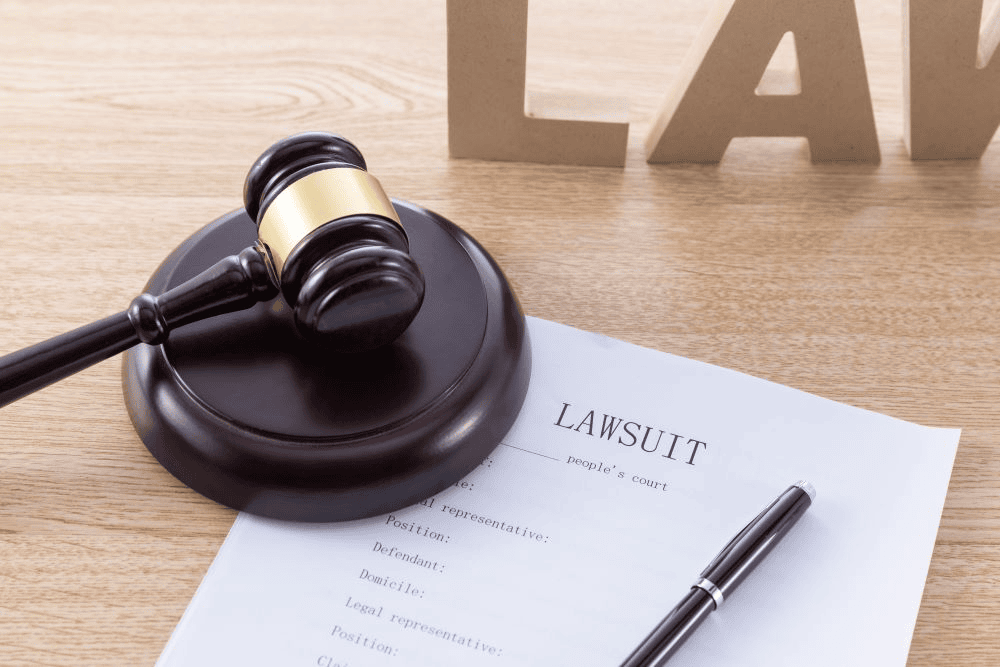
Did you know, facebook took action on 691 million fake accounts, down from 827 million in the previous quarter alone?Impersonation can be a distressing experience, leaving victims feeling violated and vulnerable. But what legal recourse do you have when someone impersonates you? Can you sue them with reasonable doubt? What are the laws surrounding impersonation in the United States?
We’ll explore these questions and more, shedding light on the legal details of impersonation. Moreover, we will explain enough to decide what happens in case of a fake facebook profile.
Understanding Impersonation: What Counts as Impersonation?
Impersonation occurs when someone assumes the identity of another person, either partially or entirely, with the intent to deceive others.
This can take various forms, such as creating:
- Fake social media profiles
- Using someone else’s name to gain access to services
- Pretending to be another person in written or spoken communication.
This can often lead to cases like demand for money, committing crimes, seeking answers for illegal queries, and company fraud.
Is Impersonation a Defamation?
While impersonation can lead to defamation, they are distinct legal concepts. Defamation involves making false statements that harm a person’s reputation, whereas impersonation involves assuming another person’s identity.
However, impersonation can lead to defamation if false statements are made while posing as someone else.
Is Impersonation Illegal in the US as Per Federal Law?
Yes, impersonation is illegal in most states of the United States. It can constitute both a civil and a criminal offense, depending on the circumstances.
Civil vs. Criminal Law
Civil Lawsuit
In civil law, victims of impersonation can pursue legal action against the perpetrator to seek compensation for damages incurred.
This could include financial losses, emotional distress, and harm to reputation. Civil lawsuits for impersonation often focus on proving the defendant company’s liability and the extent of the damages suffered by the victim.
Criminal Offense
Impersonation crimes can also be considered a criminal offense, particularly if it involves fraud or identity theft. Under federal law and the laws of most states, impersonation for personal gain or to harm others is punishable by criminal charges. Convicted individuals may face fines, probation, or even imprisonment.

Legal Consequences of Impersonation
Identity Theft
Impersonation often overlaps with identity theft, which involves using someone else’s personal information for fraudulent purposes.
Federal laws, such federal laws such as the Identity Theft and Assumption Deterrence Act, prohibit identity theft and provide for criminal penalties.
False Impersonation
False impersonation occurs when someone poses as another individual without their consent. This can lead to legal consequences, including civil lawsuits and criminal charges.
Victims of false impersonation can seek legal remedies to protect their rights and seek justice against the impersonating perpetrator.
False Personation
In addition to false impersonation, false personation involves a person pretending to be a public official, such as a police officer or government official, with the intent to deceive others. This is a serious crime and can result in criminal charges.
Taking Legal Action
What to Do When Someone is Impersonating You
If you discover that someone is impersonating you, it’s essential to take immediate action to protect yourself. Here are some steps you can take:
Document Evidence:
Keep records of any communications, any fake Facebook profile profiles, or fraudulent activities associated with the impersonation.
Report to Authorities:
Contact law enforcement or relevant authorities to report the impersonation and file a formal complaint.
Notify Platforms:
If the impersonation occurs on social media or other online platforms, report the fake accounts to the platform administrators.
Seek Legal Advice:
Consult with an attorney who has extensive knowledge of privacy and Internet law to understand your legal options.
Can You Sue Someone for Impersonation?
Yes, you can sue someone for impersonation, for example, especially if it has caused you harm or financial losses. A civil lawsuit can help you recover damages and hold the perpetrator accountable for their actions.
When Can You Sue Someone for Impersonation?
You can sue someone for impersonation under various circumstances, including:
- Financial losses due to fraud or identity theft.
- Emotional distress caused by defamation or harassment.
- Harm to reputation resulting from false statements made while impersonating you.
How Can You Sue Someone for Impersonation?
To sue someone for impersonation, you’ll need to:
- Gather Evidence: Collect evidence, such as screenshots, emails, or witness statements, to support your case.
- Hire an Attorney: Work with an experienced attorney who can guide you through the legal process and represent your interests in court.
- File a Lawsuit: Your attorney will help you draft and file a complaint against the perpetrator, outlining the damages you’ve suffered and the legal basis for your claim.
- Litigation Process: The lawsuit will proceed through the litigation process, including discovery, negotiations, and possibly a trial if the case doesn’t settle.
Legal Consequences for the Perpetrator
Can They Go to Jail for Impersonating Me?
Yes, depending on the severity of the offense and the applicable laws, the perpetrator convicted of impersonation can face criminal charges and potential imprisonment. Federal and state laws impose penalties for identity theft, fraud, and other related offenses.
Other Legal Consequences
In addition to criminal charges, the perpetrator of impersonation may face:
Civil Penalties:
They may be required to pay damages to the victim for financial losses, emotional distress, and harm to the person’s reputation thereafter.
Injunctions:
Courts can issue injunctions ordering the perpetrator to cease their impersonation activities and remove any false content or fake accounts.
Restitution:
They may be ordered to compensate the victim for any financial losses or expenses incurred as a result of the impersonation.
How Can an Attorney Help You in an Impersonation Case?
Discovering that someone else has been impersonating you can be a distressing experience, leaving you feeling violated and vulnerable. In such situations, seeking the guidance of an experienced attorney can be invaluable. Let’s explore how an attorney can assist you in an impersonation case.
- Understanding Complex Laws: Attorneys steer the intricacies of privacy laws, defamation, and intellectual property rights, ensuring your rights are protected amidst complex legal landscapes.
- Assessment of Your Case: Attorneys can assess the strengths and weaknesses of your case and provide you with an honest evaluation of your chances of success in pursuing legal action.
- Documentation: Attorneys will assist you in gathering and organizing evidence to support your case. This may include screenshots of fake profiles, emails, or other communications related to the impersonation.
- Determining Legal Action: Based on the evidence and your goals, your attorney will help you determine the most appropriate course of legal action. This may involve pursuing a civil lawsuit, filing a complaint with law enforcement, or both.
- Drafting Legal Documents: Attorneys will draft legal documents, such as complaints, petitions, and cease and desist letters, on your behalf.
- Negotiations: If the perpetrator is willing to resolve the matter outside of court, your attorney will negotiate on your behalf to reach a settlement agreement that meets your needs.
- Litigation: In cases where negotiation fails, your attorney will represent you in court proceedings. They will present your case, examine witnesses, and argue on your behalf to secure a favorable outcome.
- Maximizing Compensation: Attorneys assess the full extent of your losses and pursue all available avenues for recovery, aiming to maximize compensation for damages resulting from impersonation.

Experience Legal Protection with BLG: Your Trusted Ally in Fighting Impersonation
Impersonation is a serious offense with legal consequences. Whether it’s creating fake social media profiles, using someone else’s identity for personal gain, or falsely representing oneself as another person, impersonation can have far-reaching effects on the victim’s life.
Fortunately, there are legal remedies available for those who have been impersonated. By understanding your rights and taking swift legal action, you can hold the perpetrator accountable and seek justice for the harm caused.
If you’ve been a victim of impersonation or have reasonable doubts and are seeking legal guidance or representation, don’t hesitate to reach out to a lawyer at BLG. Our experienced attorneys specialize in privacy law, defamation, and civil litigation, and we’re here to help you navigate the complexities of your case.
Contact us today for a confidential free consultation.





